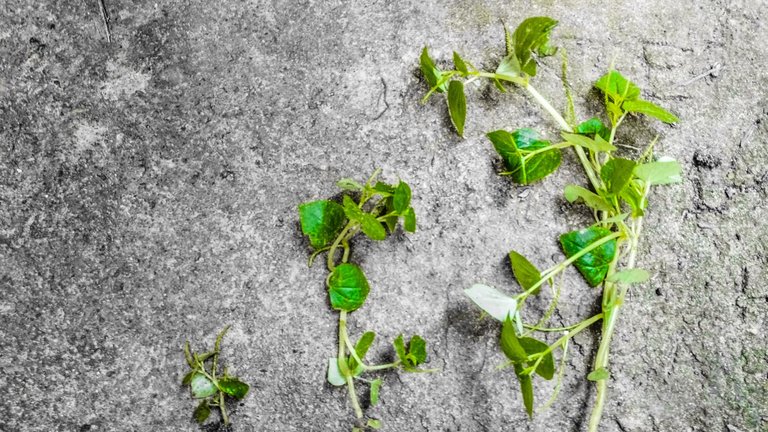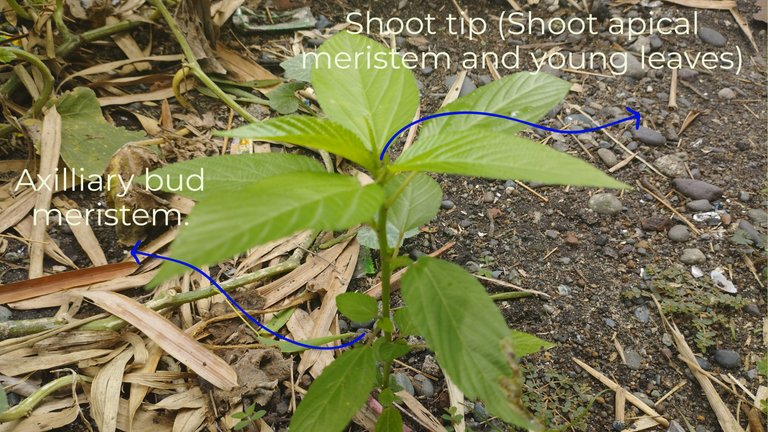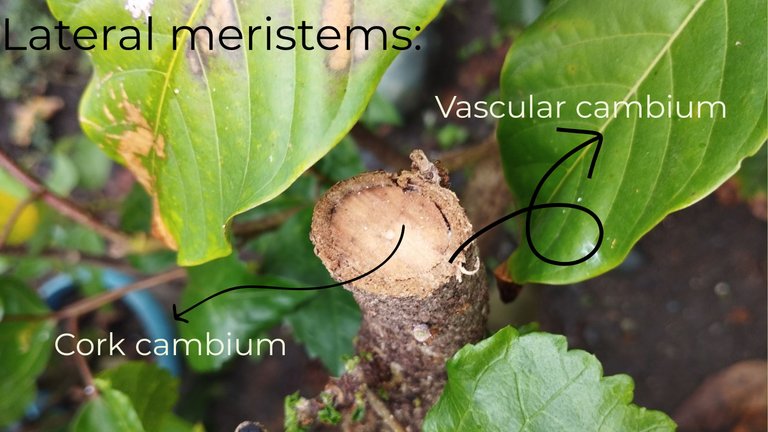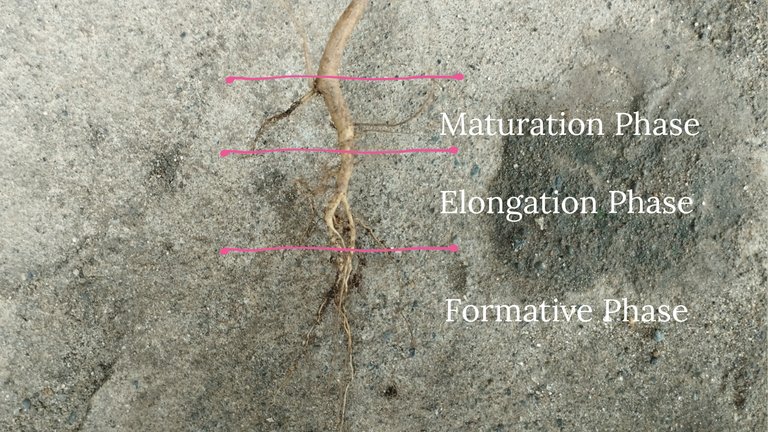The Green-thumb Notes 1: Why Do Plant Grow?

Have you not been curious about why a plant grows? As a garden or plant lover, one of the best things is to look for an answer. Why, on days your plant grows taller than you, or has your seed sprouted in just hours? I have a note as a green thumb, with my career path aligned with plants. I love taking notes while listening to my teacher, and now I will make it into a blog to retain my knowledge and aims to learn something new from others' comments.
WHAT IS PLANT GROWTH?
To easily understand why a plant grows, the plant is a living organism like us humans, and growth is a fundamental and salient feature of both plants and animals. It was an irreversible increase of size, height, mass, or any part of the organism. It's normal, and we all know it's their way of reproducing or cloning its form.
Do you know that when you planted a plant, and you get that from the stem, it's cloning? I heard people say it's a baby from a mother plant, which wasn't true. They are a clone, which means that what was the characters and growth habits of the parent plant still the same as the cut one. It was asexual propagation.
The plant grows in two sequences, primary growth and secondary growth. Primary is the growth that happens in the root and shoots. Increases the secondary sources to absorb more water and nutrient from the soils, and nodes grow their stem and produce leaves to power up Photosynthesis. The secondary growth occurs in the lateral meristem or cambium to help increase the diameter of the girth of your plant.

Some say they can count the number of years by looking at the tree's circumference when they cut it down, and one round alignment is for one year. There was no evidence that this was true, for plants don't know the year.

The plant grows based on continuity of growth. To understand more about the growth characteristic of your plants, we must know the features of their plant growth. People loved manipulating the growth of plants, which happened in the landscaping and even making up a bonsai plant. They make it to show the beauty of the plant even still in its continuity of growth.
Plants have unlimited and limited based on height and size. Infinite growth is like our nails, and we are always irritated sometimes. We just cut it last week, and now it grows back again, like human hair that continues to grow. In plants, it happens in their roots and shoots. The roots' continued growth helps them absorb more in the soil and allows the ground to bind to prevent erosion. The more shoots they produced meant, the more food they could get from the sun thru Photosynthesis.
Hence the limited growth is for plants, flowers, and fruits. When they reach the maturity of their flower from buds to blossom, some flowers will help rotten others, when fertilized, become fruit—fruits from immature to ripen one when ripening becomes the last stage of the growth itself.

Plant growth is intermediate, which means it will happen throughout their lives, from germination or seedlings to senescence in the s or the last period of their reproduction stage.
FACTORS AFFECTING THE PLANT GROWTH?
As green thumbs and gardeners, we loved to see our plants grow, and we gave them what we think the best, tender love and care. But what do the factors thou? Here are some.
Lights.
This was the fundamental reason they grew and got their food from the sun. Respiration is when they eat, and Photosynthesis is when they gather and collect food. Do you know that plants eat at night? Respiration happened only at night. That was also their way of preventing water loss in their leaves.
Temperature.
This is the reason why more plants were grown in a tropical regions, due to temperature requirements. Not all plants need a high temperature or can withstand that high temperature like the cacti families. Some succulents or aloe cannot stand the high heat weather of high temperature.
When someone asked me a question, "why my plant didn't grow or seem rant even though I gave all the fertilizer, they needed" not realizing that it was summer and the heat index could reach 40 degrees celsius. High temperature also affects the growth of the plant transpiration, just like I said, why plants do respiration at night, to avoid transpiration.
Water
The most important element for plants. The plant body itself contains water, and water holds everything. The xylem and phloem of the plants involved cell division and elongation. But sometimes, also water becomes toxic to plants when it is given in too much water. Water stress causes plant growth stops or permanently becomes stagnant. Watering also needs some controls.
Nutrients
Or what we sometimes call Fertilizers. In the vegetable plant, the essential nutrient they need is NPK which most commercial fertilizer companies produce. Nitrogen (N) was for greener leaves to help plants absorb sunlight more.
Soils
Where water and nutrient come first, fertile soil also plays a massive part in plant growth.
Plant growth happens naturally, but sometimes we always want to fast track. We loved to see our plants grow instantly. As a gardener and plant lovers, we need to understand how this plant goes well and increases in size, mass, and height.
I have notes in college for my field, and my interest was in Horticulture and research. As I prepared for the following year's restart of class, I decided to review and make a blog on what I learned from years of my studies. To retain what was in my mind.
ALL PHOTOS BELONG TO @eunoia101
 | Hi, eunoia101 is a Farmer, Registered Agriculturist, Agronomist, Farm Technician, Mushroom Cultivator, Entrepreneur, and soon Researcher. Suppose your problems or queries are in any of the fields, don't feel hesitant to comment. We will try to resolve that. Upvote and reblog are highly appreciated. |
|---|
Ahh yes, I remember npk fertilizers and how hellish getting the K2O value is every time. Do you mind discussing a good composting method for urban gardening with limited space cuz I want to grow herbs ;;-;;
Uwuu sure, I will add it to my pending topics hehe. I love soil science thou, especially fertilizer computation. Well I don't at first but realizing that I need it for work I do hands on in that NPK thing haha.
You should learn Kjeldahl titration, k20 titration and water soluble, citrate soluble and gravimetric phosphate computation for those npk values. It's why I hate it a lot 🤣 it's just one sample but it takes me an entire week to analyze
Thank you for adding that to your pending topicsss
This is really the basic concept, lectures, and discussions about plants and some forget them. Actually, I am not familiar with some terms you used, but I know what they are in Filipino terms. The basic elemental factors of a plant's growth are worth noting.
I have been planting since young and unfortunately, I didn't pursue taking an Agricultural course back then even if it caught my interest. I would love to read more of your blogs regarding farming and such.
Indeed just a basic. I just seen some pointers in my notes thou. I am not the guy who write most. Just that key words are enough hehe. Yeah really that will happened more and more blog to comes. To refresh my mind of course. Preparing for the battle next year hehe. After enrolment of Master Degree I will try to gets some teaching course while studying hehe
Reading this blog of yours made me remember the topics in our Science class that were taught during my High School years. I am quite familiar with the terminologies you used and I'm glad that I still remember them! It just means that there is some knowledge retained in my mind even though years passed by.
Since you mentioned that plants need nutrients or fertilizers to grow which is completely essential for a living organism. I want to share what my biology teacher shared with us, you probably know this already but I still want to share. Lol.
Eggshells are a great source of nitrogen for plants. When I heard it from her I applied it to our plants at home and still doing it today. I collect all the eggshells first, dry them in the sun, and after that pulverized them. Then it's now ready to be sprinkled on plants' soil!
Oww actually not Nitrogen, egg Shell is Calcium hehe. Then when fermented becomes CalPhos. And yeah it really have a effect especially you fermented it with some egg Shell and sugars. I do helped someone back in my college about her research was all about it, she tested it to some varieties of tomato and yeah there was significant results in height of the plant.
This makes me more interested in plants!
Yiee let's grow our own food. That's the advocacy.
You really know a lot about plants.. Do you have a plan to buy a farm in the future?
Yes definitely hehe, I am eager to back to school next year thou, so help me Lord. Now I must refresh my notes for me not to be late if some interview will happened hehe.
As a gardener and a farmer, this kind of topic really captures my interest and with this one some of the lessons back then came back.
Discussing the basic needs of a plant really matter if others out there want to pursue things like agriculture. I want to learn more about rice production sir if you mind since I knew that you already discussed it back in your school.
Planting and taking care of a plant is hard but if you have the knowledge then it's just easy.👌
Yiee thanks bro, next time will be rice related so you could have something else to try on. Modern technology in rice farming today's in the Philippines. Who knows that you could adopt some hehe.
Ayiee. Thank you sir. I will look forward to that one and hoping that those methods is just so right in my pocket haha. It's so expensive when it comes to rice farming and yet the price is too low..
Senorito Haciendero in the making. 👍
Yiee profesor in the making haha. Why not, I loved plants and animals as I really flight to have my course hehe.
Thanks agri teacher @eunoia101. I remember my spring onions, they were so thin right now because they can't see the sun anymore. I am planning to replant them and find a place where they could see the sun and vice versa.
Yay! 🤗
Your content has been boosted with Ecency Points, by @eunoia101.
Use Ecency daily to boost your growth on platform!
Support Ecency
Vote for new Proposal
Delegate HP and earn more
It is very important to understand how they grow for cutting purposes =)

!1UP
Indeed, as we loved to plant and garden understanding there morphology is best. Thank you for 1UP highly appreciated....
You have received a 1UP from @gwajnberg!
@stem-curator
And they will bring !PIZZA 🍕.
Learn more about our delegation service to earn daily rewards. Join the Cartel on Discord.
PIZZA Holders sent $PIZZA tips in this post's comments:
@curation-cartel(15/20) tipped @eunoia101 (x1)
Please vote for pizza.witness!
This is such a nice blog for people like me with no skills in planting. I remember back in high school we had a propagation project. Guess what, no roots for me! Good thing, there is are orchids at our garden so I just picked the orchid and passed it as my project haha! Don't copy me kids!
This make me feelike teaching in my Science Class. I really admire your writings Eunoia, very useful.and beneficial to others. ♥️ Keep it up, and nice to read to read your article again. 🙂
Hi @eunoia101, your post has been upvoted by @bdcommunity courtesy of @rem-steem!
Support us by voting as a Hive Witness and/or by delegating HIVE POWER.
JOIN US ON
Thanks for your contribution to the STEMsocial community. Feel free to join us on discord to get to know the rest of us!
Please consider delegating to the @stemsocial account (85% of the curation rewards are returned).
You may also include @stemsocial as a beneficiary of the rewards of this post to get a stronger support.
Thanks to this blog, I learn a lot and can apply it to our tree planting event and webinars
we planted a lot of trees, and yes we consider that factors talaga Bro, Solid!